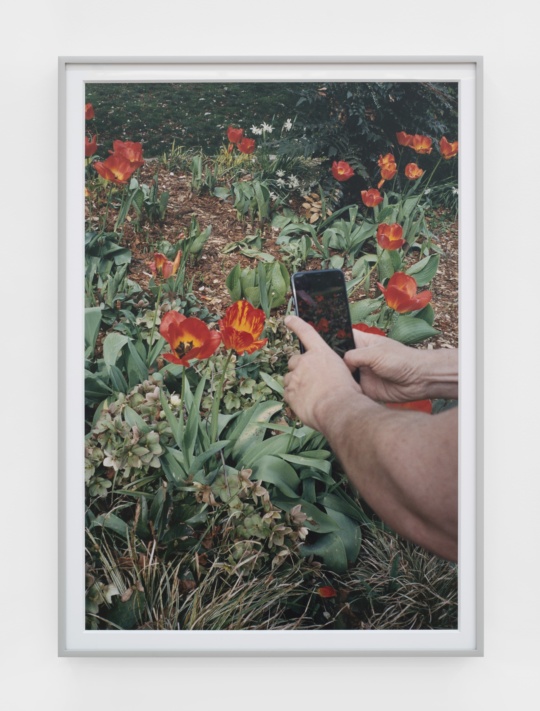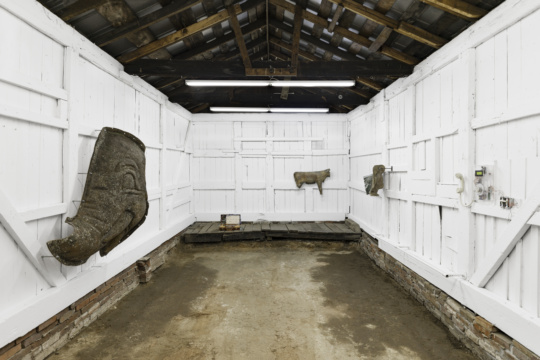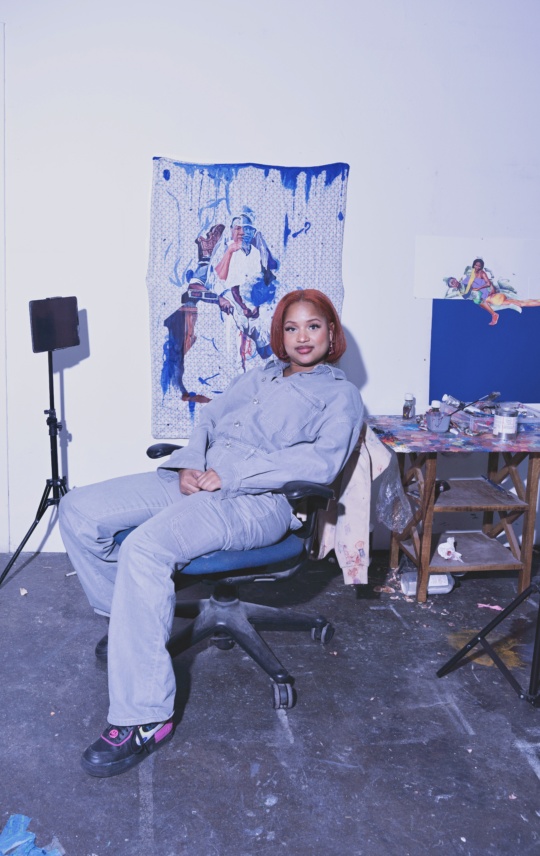
For your summer reading pleasure, BURNAWAY brings you Just Like Suicide, a novel by artist Mery Lynn McCorkle, set in the Los Angeles art world. She writes from experience, having lived for years in Williamsburg, Brooklyn, when it still was the art frontier, and then LA; she now resides in Rome, Georgia. She describes the book as “a compendium of interlocking tales cataloguing self demolition and success in the Los Angeles art scene, from the point of view of artists, dealers and family members.”
We’ll post sequential chapters from McCorkle’s book every Wednesday and Friday over the summer. Or click here to buy the book now.
Three
My, how time has flown, Odessa told herself as she maneuvered through the thick traffic, focusing on the vanity license plate, GIF2SLF, of the snazzy car in front of her instead of the reason for the drive. Death is just so damned depressing. From having an oncologist for a husband who routinely bonded with his patients, she’d learned to think about peripheral things at funerals. Looking at death straight on is hard, one of the hardest parts of living. Besides it’s not like she and Rina were close. They just had a history, such a long history of association without ever becoming anything close to friends.
They were both so young when they met.
Parking the car for the funeral, she thought about that awful job for the first time in eons. Amazing how memory works, isn’t it, shifting in a split second from long forgotten to seeing each one of the staff so clearly they could have just left the room. Her first job in New York City, a great sounding job, writing grants for a big museum. If it seems too good to be true, her momma had warned her, it probably is not what it’s cracked up to be. Her momma had so often been right.
The department head had been a grand old gentleman, so gallant, bringing all of his office “ladies” chocolates every Monday, never missing an opportunity to pay a compliment. He was a total sweetheart and drove all of them bat shit nuts. He could not for the life of him make a decision and rewrote even a one paragraph memo a minimum of twelve times. Eight times out of ten, the final version was identical to the first. Nonetheless, he insisted upon reading each and every version printed on paper with the letter head. The woman who actually ran the department was what Odessa’s momma would have labeled a floozy. She wore her clothes with the abandon of a French woman and always had brightly painted, pouty lips, a wiggle in her walk. Her business suits were just a disguise. She convinced the wealthy collectors and corporate executives to be generous over late-night cocktails. She enjoyed her job. To do the grunt work in the department, Floozy hired a slightly younger woman.
The younger woman was as sharp as a two inch tack, but even the Gentleman had trouble finding a compliment to offer her. She was tiny, almost skeletal, with the thickest eyebrows ever seen on a woman of any size. One of her grunt jobs was overseeing the floaters. That task was transferred to Odessa, in part because Sharpie did not like working with underlings and in part to keep Odessa away from editing everyone else’s grants. It always irritated Sharpie that someone from a state college in Mississippi had better grammar than she did with her Harvard degree. Sharpie made a point of pointing out loudly to everyone and their cousin that Odessa was very smart for a Southerner.
The office went through floaters quickly. Sharpie was impossible to please and Floozy didn’t care. At first, this made Odessa feel special. But during one rough patch, after training five floaters in less than a month, Odessa found herself working nights doing her job and most of theirs and realized she wasn’t special. She was a sucker.
Enter Rina onto the stage with her blonde hair and long legs and more connections than the big bosses combined. The Gentleman and the Floozy both wanted Rina to succeed. Sharpie, therefore, made her life hell, standing behind her, pointing out her typos while she inputted spreadsheet data, belittling her posture, her work habits, even her lunch choices. For three days running, Odessa found Rina crying in the bathroom during lunch break only weeks after she was hired. Being a decent person and a bit older than Rina, she took it upon herself to speak with Sharpie privately, thinking that maybe she wasn’t aware of her cruelty and condescension. Odessa was summarily fired. Rina got her job.
She didn’t blame it on Rina. She even felt sorry for her. Rina wasn’t prepared to take over the job. All of her great connections did not translate into cogent sentences, much less convincing paragraphs.
Over the next few weeks, Odessa secretly coached Rina on how to write a grant. Grants change jargon as regularly as styles change in the fashion industry. Using the wrong words could kill a proposal. Rina’s complete receptivity to her suggestions flattered her but when Odessa got a new job and could no longer volunteer unlimited assistance, Rina not only stopped calling but she pretended not to know Odessa when they ran into each other at an opening reception at another museum. Ten months later, after rumors started circulating about the terrible grant applications coming out of the big museum, Rina’s father donated a very large sum of money to them and Rina abruptly left to attend grad school.
Schadenfreude. She had to admit relishing it for a minute or two when she had heard that news. Being snubbed in front of so many people at the museum reception had been mortifying. Rina’s obvious failure at the job did help assuage the hurt. But that sharp pain was long gone, leaving maybe a bit of sticky residue, a mild irritation. Odessa certainly didn’t feel any kind of joy attending this funeral. The woman left two daughters behind. No mother would wish that on anyone’s children.
In front of the whitewashed façade at the rear of the church, she joined a group from the little local museum standing patiently in the shade of burly old lime trees. Swamped by this lush scent, they were all fidgeting, asking each other very quietly if anyone had heard anything about how Rina’s death would impact their funding. Her family foundation supplied over half of their museum’s operating budget.
The staff’s running joke was that the primary purpose of the museum was to keep the founders’ children employed. Everybody knew that maintaining a job was mandated in the parents’ will. No work, no trust fund money. Just being exquisitely beautiful apparently did not satisfy the parents’ work ethic. Rina’s brother-in-law was an attorney whose clients included the museum. Her sister, his wife, was the head of the human resources department, a job she attended to less and less as she became more involved in chairing important charities. Roger had been hired to design the building, his first multimillion dollar contract which catapulted his career. A wing of the museum was named after her father; another, after her mother. The white marble atrium, which her parents had insisted upon, had an inescapably large bronze medallion with their profiles on it. A long time friend had confided in Odessa shortly after taking a senior curatorial position that he was grateful he hadn’t been required to rename his children after them.
Despite the founders’ rampant egos and nepotism, everyone working there was proud of the museum. With good reason. They produced high quality shows with the finest catalogs in the region. It was a mighty fine museum, a little gem.




